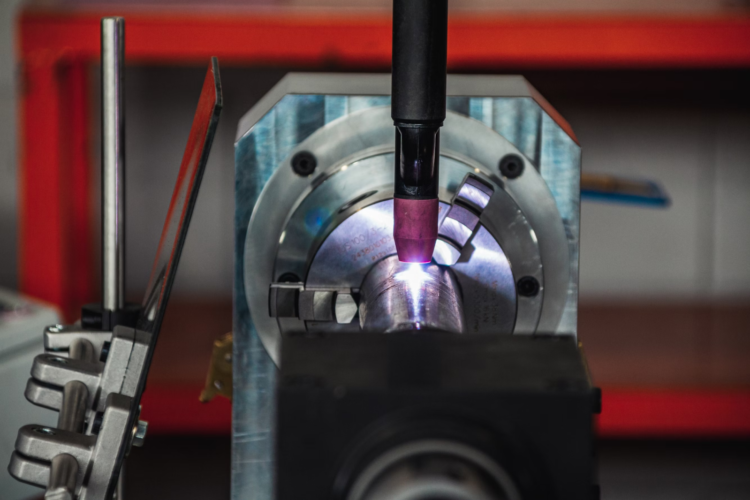Understanding Laser Welder Price Ranges: What Affects Cost?
Jumping into the world of laser welders can feel a bit like stepping into a candy store blindfolded—so many shiny, tempting options, but how do you know which one’s right (and which price tag makes sense)? Prices can range all over the place, thanks to variables like laser type, power, and extras. This post will help you sort through the clutter, so you don’t overspend or pick the wrong tool for your needs.
Overview of Price Tiers
Laser welders come in all flavors—and their price reflects that. Here’s a quick look:
| Tier | Cost Range | Who It’s For |
| Entry-Level | $5,000–$15,000 | Hobbyists or light-duty use |
| Mid-Range | $15,000–$40,000 | Small shops needing speed and flexibility |
| High-End | $40,000+ | Factories and heavy-duty production |
Spotting laser welders for sale online or through distributors? Keep your real needs in mind—don’t be distracted by bells and whistles you’ll never use.
Primary Cost Drivers
So, why do prices vary so much? Here are the biggest factors:
Laser Power Output
More watts—more cost. Simple. A 200W unit could land you at around $10K, but push into 500W territory and you’re looking at $25K or more. If you’re just working with thin materials, that extra power might be overkill.
Laser Type
CO₂ lasers are the budget-friendly siblings (starting around $5K), but fiber lasers pack more punch—better efficiency, better longevity, and yes, a heftier price tag (often $15K+).
Automation & Precision
Want a machine that basically runs itself? Auto-focus, motion control, and precision tooling will push your budget well into mid-$30Ks or beyond. But they save time, reduce errors, and free you from babysitting the process. If you’re searching for a laser welder for sale that can handle production with minimal oversight, these features are well worth the investment.
Brand Reputation
Name brand gets you a premium—think 10 to 30 percent extra—but also usually better support, warranties, and part availability. No big-name brand? You could save, but support might not be as reliable.
Multi-Functionality & Extras
Need engraving, cutting, or a cooling system built in? Expect the price to climb into the $20K–$50K range. Accessories aren’t free either, so add those into your final tally.
Warranty, Support & Compliance
Machines that come with good warranties and safety certifications may cost a bit more upfront. But that extra peace of mind is often worth it—especially if something breaks down early.
Shipping & Installation
These aren’t desktop units—delivery and setup can rack up unexpected charges, maybe $1K or more. And once it’s in your shop, don’t forget ongoing costs: electricity, consumables, and maintenance all affect your total cost of ownership.
Price Ranges by Category
Let’s break it down by category again for clarity:
| Category | Cost Range | Best For |
| Entry-Level | $5K–$15K | Hobbyists or light tinkering |
| Mid-Range | $15K–$40K | Small businesses with steady need |
| High-End | $40K+ | Production-heavy operations |
Think 500W fiber laser? You’re probably in the mid to high tier—start pricing around $25K+. CO₂ lasers are still useful, just remember they’re less versatile than fiber lasers.
Market Trends & Forecasts
Prices don’t stay the same forever. With more industries (like autos and aerospace) jumping on board, demand is pushing cost up a bit. But more competition—especially with brands like Denaliweld entering the market—is also bringing better deals, particularly as manufacturers introduce new models.
If price doesn’t need to drop, newer tech usually hits the market more affordably. Watch for announcements and upgrades—they might help you snag a good deal on last year’s denaliweld model without compromising on performance.
Strategic Buying Considerations
Eyeing a laser welder for sale? Think through:
- What you’re welding: Metal sculptures? Industrial parts? Your needs determine the tech.
- Laser type: Fiber for metals, CO₂ for some plastics or wood.
- Power needs: Rent a bulldozer when all you need is a lawn mower? Don’t.
- Brand reliability: Who fixes it when it breaks?
- Features: Are automation tools must-haves or just neat extras?
- Hidden costs: Don’t forget to budget for upkeep, power bills, and installation.
Conclusion
Buying a laser welder isn’t just plopping down cash—it’s a strategy. Define your goals, understand the tech, read between the lines on specs, and match your purchase to your real-world needs.
You don’t need the flashiest machine; you need the one that does the job right—and stays in budget. That’s where it stands out: reliable, purpose-built systems that align with real production demands. The right laser welder for sale isn’t always the prettiest—it’s the one that fits you like a glove.




